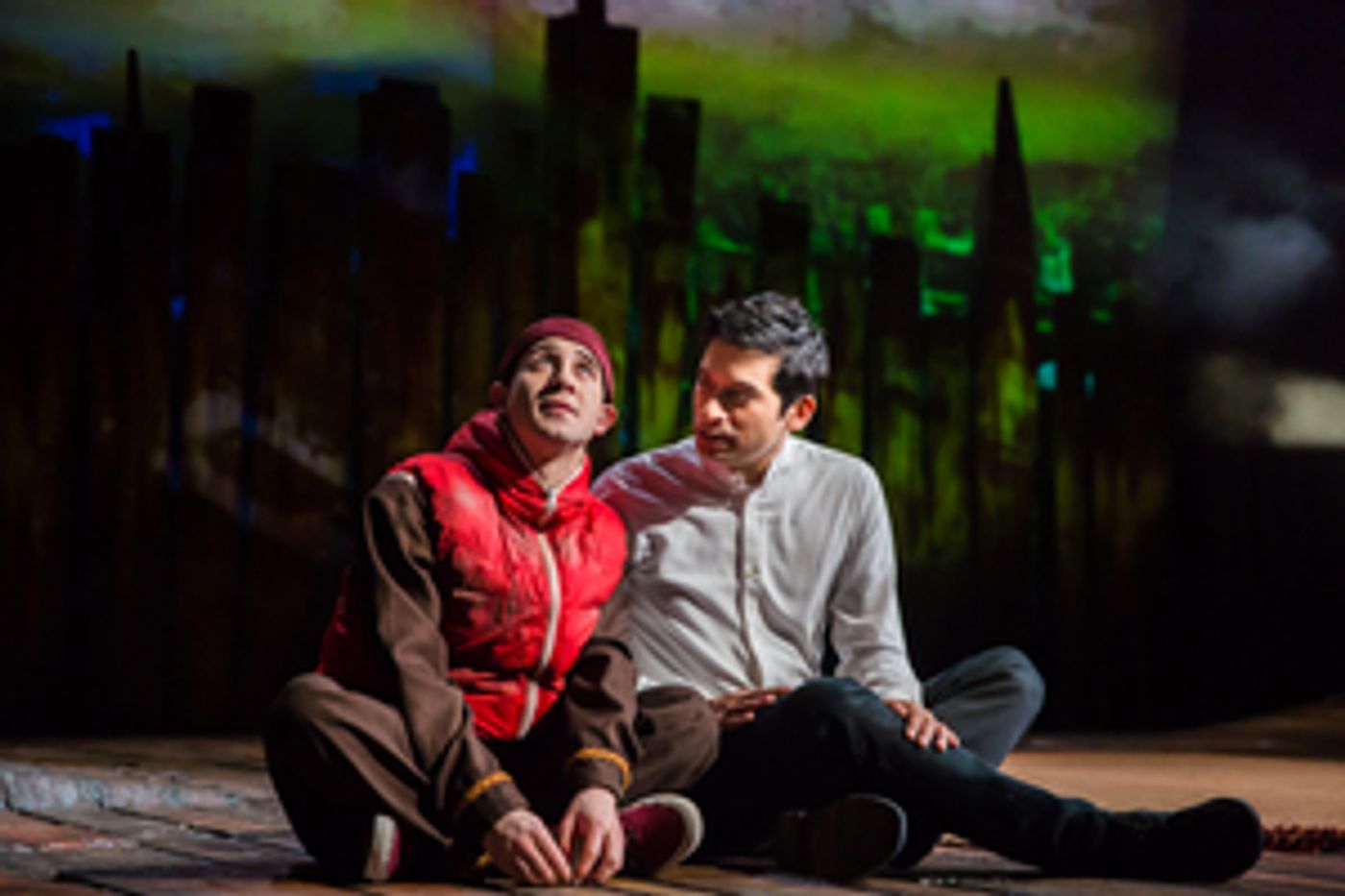Review: THE KITE RUNNER, Richmond Theatre

![]() Adapting a novel for the stage is fraught with difficulties; even more so when the novel is a literary sensation that has sold more than 30 million copies worldwide. Afghan-American Khaled Hosseini's devastating 2003 first novel, The Kite Runner, has added difficulties as a play, as it spans 30 years and crosses continents in the process. This quietly devastating play debuted in 2013 in the UK at the Nottingham Playhouse and now returns for a country-wide tour.
Adapting a novel for the stage is fraught with difficulties; even more so when the novel is a literary sensation that has sold more than 30 million copies worldwide. Afghan-American Khaled Hosseini's devastating 2003 first novel, The Kite Runner, has added difficulties as a play, as it spans 30 years and crosses continents in the process. This quietly devastating play debuted in 2013 in the UK at the Nottingham Playhouse and now returns for a country-wide tour.
A story of friendship, betrayal and redemption, it follows Amir, an Afghan refugee living in California and recalling his childhood and how his whole life changed. Before privileged Pashtun Amir and his father were forced to flee after the Soviet invasion of Afghanistan, his best friend was Hassan. Poor and illiterate, Hassan is Amir's social opposite and a member of the oppressed Hazara tribe: but the pair are inseparable, spending their days playing and flying kites. Everything changes when a terrible event leads Amir to betray his friend; an act from which he feels he will forever need to atone.
David Ahmad is Amir and has the challenge of being onstage for most of the production, portraying both a 12-year-old boy and a grown man. Jealous of his father's affection for Hassan, he is a spoilt and sometimes cruel boy. As a man Ahmad is adept at showing the deep guilt and shame that remains from Amir's childhood actions.
What are less successful are the jumping transitions between past and present, mostly due to the jarring change in Ahmad's accent; a strong Californian accent as an adult, but a high-pitched Afghani accent as a child.
Andrei Costin is like a loyal puppy as Hassan; doggedly loyal, despite any nastiness from Amir. He also later plays Amir's son Sohrab; the juxtaposition of the two characters is very poignant.
In a story that focuses very much on relationships between fathers and sons, Amir's father Baba, well-captured by Dean Rehman, is a domineering personality; strong and full of pride. Hassan's father Ali is a modest and diligent Tiran Aakel and Bhavin Bhatt is chillingly cruel as bully Assef.
There is a lot from Hossieni's beautifully composed prose to fit into the play and Matthew Spangler's writing remains fairly faithful to the story. In an effort to fit everything from the 400 pages in, it does seem some of the poetry is lost and the narration sometimes feels like a retelling of the chronology of events, rather than an exploration of the events themselves. It is also inevitable that certain events are omitted, but this will only matter if you have read the book. The story is both compelling and heart-rending.
Music is a central part of the play; from Hanif Khan's evocative tabla playing to Jonathan Girling's original compositions. There is a true sense of real Afghan life, with a warmth and joy before the devastation of the war.
Barney George's simple set design allows the focus to be on the actors. Two large canvas kites move across the stage, projected with William Simpson's creative patterns.
The weight of emotion remains in the production; as an exploration of guilt and redemption, it delivers a gut-punch in many ways. The loyalty of the sweet Hassan who is so deeply betrayed, the loss of childhood innocence that can never be recovered and the prospect of some sort of redemption against all odds.
It is an evocative and touching production and, despite the heaviness of the narration at points, it would be a hard-hearted person to leave this play without being profoundly moved.
The Kite Runner is at Richmond theatre until 14 March, then touring
Photo Credit: Betty Zapata
Reader Reviews
Videos

